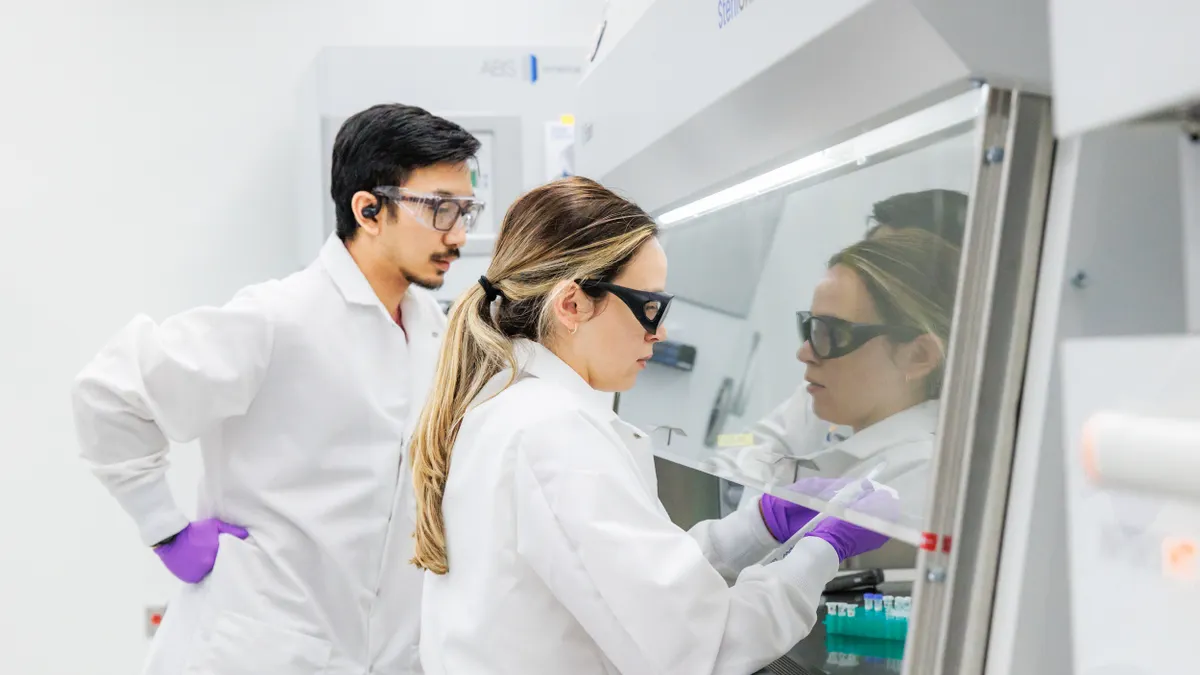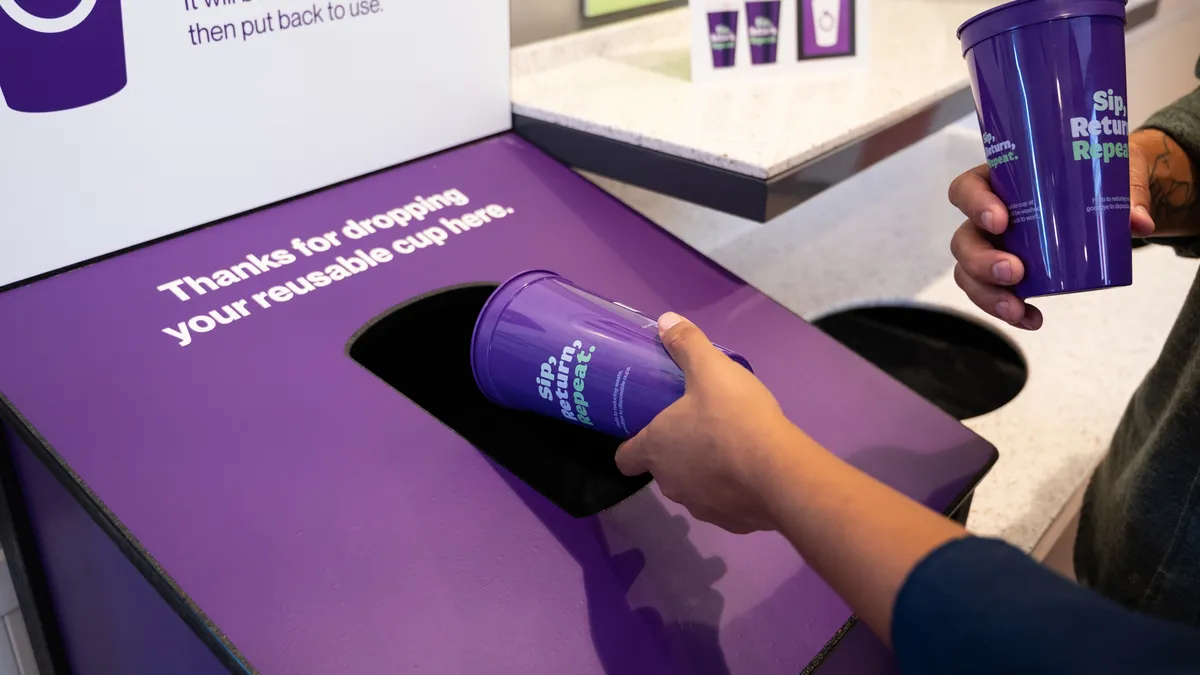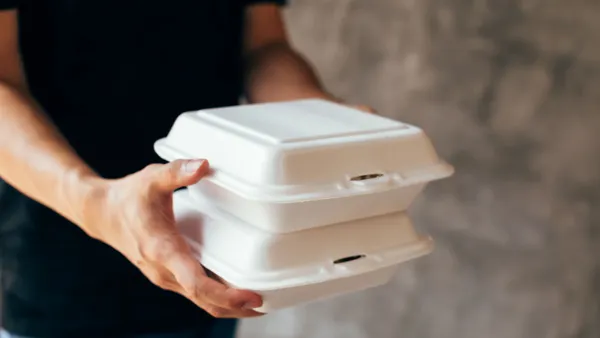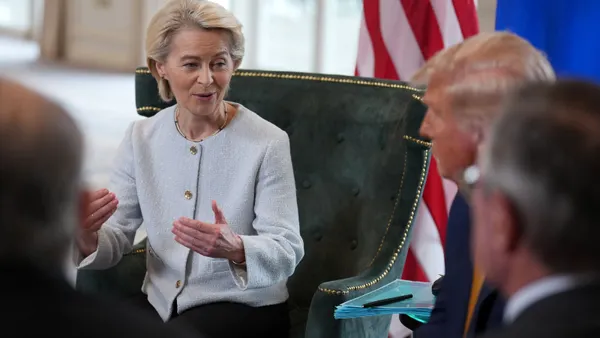Dive Brief:
- A Rhode Island bill calling for a statewide recycling needs assessment and the creation of a recycling advisory council is headed to Gov. Dan McKee’s desk. The study bill is a major overhaul of a previous version that would have established both a container deposit return system and an extended producer responsibility for packaging law.
- The original bill, introduced in April by Rep. Carol Hagan McEntee, had called for establishing a 10-cent deposit on certain beverage containers, setting up details of a packaging EPR system, setting certain recycling and return targets, and other features. State legislators instead voted on June 20 to delete these provisions and replace them with a study bill.
- If McKee signs the study bill, the Rhode Island Department of Environmental Management will need to hire a third-party consultant by Oct. 29, 2025. That consultant must submit a report by Dec. 1, 2026 that examines the state’s existing recycling infrastructure and offers recommendations that might be used to craft future bottle bills or EPR programs.
Dive Insight:
Rhode Island’s late-in-the-game bill overhaul illustrates how sometimes-conflicting environmental and business group priorities can make it difficult to pass bottle bill proposals. Numerous bottle bill updates are introduced in state legislatures each year, but few pass.
At issue in Rhode Island is ongoing opposition from a coalition led by the beverage industry and other groups that said the original bill would have hurt small businesses. Meanwhile, environmental groups say the state’s recycling system needs a major revamp to prevent litter and meaningfully divert material from landfills.
The new study bill was pitched as a compromise between the two camps, the Rhode Island Current reported.
If McKee signs the bill, a consultant will undertake a needs assessment looking at the state’s waste and recycling infrastructure and capacity as well as key end markets. It’s a similar process to recycling study bills carried out in states like Maryland, whose legislature in 2023 overhauled an EPR for packaging bill in favor of a study bill. The final report from that bill came out in February. Just three months later, the state passed an EPR for packaging law.
Hawai’i passed a packaging EPR study bill of its own earlier this month. Meanwhile, Illinois is progressing on its own EPR for packaging study, with a report to the legislature due in December 2026.
Rhode Island’s proposed needs assessment will also need to note other details such as costs of disposal and recycling, demographic analyses on waste service access and participation, and details on disposal and recycling methods, according to the bill.
A final report must include findings and recommendations that might be used to inform a future EPR or bottle bill program, or both, according to the bill.
That report must also offer a “consideration” of the combined EPR/bottle bill program originally proposed in McEntee’s original bill. It must also consider input offered from a report published in April by a special joint legislative commission, a group formed two years ago to study “plastic bottle waste.”
That report had recommended several approaches, including a plan to establish a combined DRS system and EPR program, establish a 10-cent redemption value for most beverage container types, set certain collection and public outreach targets and other details, similar to some of the provisions in McEntee’s original bill.
Some advocacy groups expressed frustration that the version headed to McKee’s desk calls for another study, saying it duplicates much of the work the state’s legislative commission report already completed in April.
Peter Blair, policy and advocacy director for Just Zero, said the findings of that report “clearly showed the value of a modernized bottle deposit system — there’s no need to hit pause and re-study what we already know.”
Other supporters of the original combined EPR/bottle bill version included the Can Manufacturers Institute, Glass Packaging Institute and Association of Plastic Recyclers.
McEntee has said the state needs a “drastic” recycling overhaul to avoid straining the region’s landfills and raising the state’s “measly” 26% recycling rate. Her version of the bill was designed to be good for both the environment and businesses, she said in a statement, because of its ability to reduce litter while creating “more resilient, domestic supply chains and enables the creation of new products with high quality, recycled material.”
But the bill faced major pushback, particularly from Stop the Rhode Island Bottle Tax, a coalition led by the American Beverage Association, which said the bill would create new costs for small businesses and raise costs for consumers.
“The State Legislature has the ability to adopt a modern system that captures all types of packaging instead of requiring massive new state investments in infrastructure for beverage containers only, which will only create new burdens for families, businesses and local governments,” the group said in an opposition letter. The group specified that adopting an EPR program would be a better way to increase recycling rates.
Ameripen also opposed McEntee’s bill version, particularly its proposed packaging collection rates and producer fee structure. It was also against the recent EPR for packaging bill in New York that failed to come up for a final vote earlier this month before the end of the state’s legislative session.
The final bill calls for creating an advisory group that includes waste industry representation. That includes a person from a MRF operating in the state, as well as people representing organics processing, reuse and refill systems operations and an “academic or scientific expert on waste systems, environmental health, or circular economy,” according to the bill.












